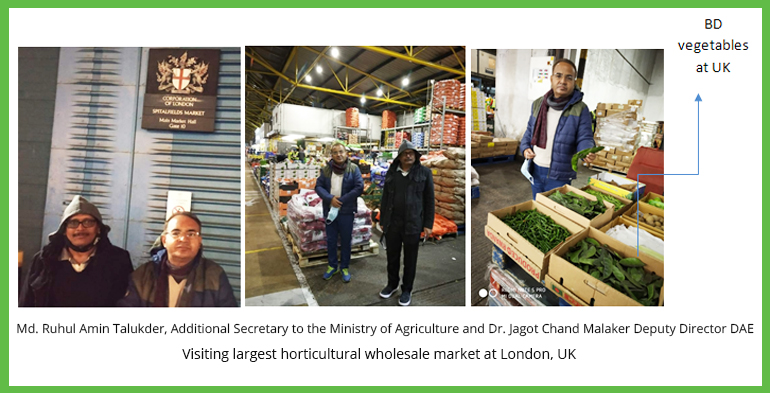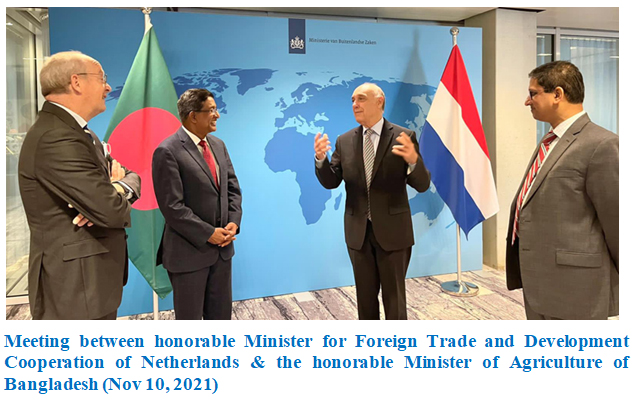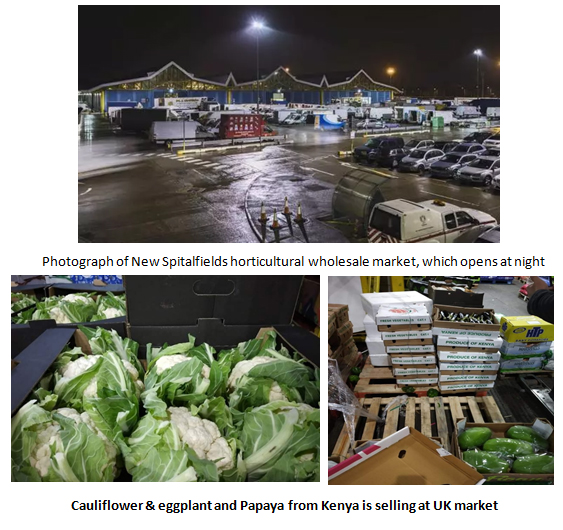
Dr. Jagot Chand Malaker:Bangabandhu had a strong dream to establish Bangladesh which will be free from hunger and poverty and to revive the Bangla as Sonar Bangla. After the independence, the leader took revolutionary steps for reformation of the agricultural sector of the country. He put special emphasis on agricultural education, research, extension, industries and markets. He waived agricultural credit for marginal farmers.
To encourage innovative and talented students to study agriculture, he upgraded first class status of the agriculturist profession. He had introduced Bangabandhu Jatiya Krishi Puroshkar, the highest state recognition for achievements in the agriculture sector. He decorated the agricultural policies and first fifth year plan (1973-78) based on the farmers and their economic conditions. He also put special importance in practicing integrated agriculture farming. The government of Bangladesh has declared the year 2020-21(17th March 2020-16th December2021) as the Mujib Year, celebrate on the occasion of the Centennial birth anniversary of the founding leader of Bangladesh, Sheikh Mujibur Rahman.
On the occasion of Mujib Year, to fulfill the dream of father of the nation. We have planted 11.5 million saplings and launched a program called “Mujib Climate Prosperity Plan” in 2020. Government reduced fertilizer price subsequently four times to ensure balanced use of fertilizer through subsidies to optimized soil fertility and production. Government has instructed to ensure at least 30% participation of women in agricultural activities.
Bangladesh is an agriculture country and the agriculture sector contributes 14.75% to GDP. Bangladesh achieved self-sufficiency in food crops production. The annual rice production is 34.71Million MT. Bangladesh exported 346.25 million USD agro products including fresh fruits and vegetables, frozen food items, spices, aromatic rice, dry foods, stuff, flowers, seeds, live trees, etc., to various EU countries in FY 2020. Farmers of our country are the main contributor of our resilience food systems. Regarding production farmers played vital role to feed us as well as whole nation. We have to ensure good agricultural practices (GAP) in the production levels to get safe and resilience food systems as well as safe exportable items of agricultural products.
We have taken several initiatives for enhancing Export facilities in recent years, but still have many challenges on food safety issues. Therefore, we may need your practical training support to develop efficient & competent lab staff. In addition, assistance in risk-based inspections and risk management regulatory framework is also being sought to upgrade the PQW into and independent National Plant Quarantine Authority (NPQA).
Department of Agricultural Extension (DAE) works at the field level and under this department Plant Quarantine Wing (PQW) works as a regulating authority to boost up and maintain the export of plants and plants products, beneficial organisms and packing materials complying with the phytosanitary requirements of importing country in consistence with international agreements. PQW has 30 plant quarantine stations (Airport-3, Seaport-3, Riverport-1, Inland Container Depot-1(ICD),Inland Container Terminal-1 (ICT)and Landport-21) at different entry and exit points of Bangladesh. As a signatory to the WTO-SPS Agreement of the WTO and FAO-IPPC it is legally binding/mandatory for Bangladesh to comply with the international rule-based regulations and protocol while exporting and importing plants and plant products.
In FY 2020, the country exported USD 346.25 million worth of products such as fresh fruits and vegetables, frozen food items, spices, aromatic rice, dry foods, stuff, flowers, seeds, live trees, etc., to various EU countries including UK, Italy, French, Greece, Germany, Sweden, Finland, Switzerland, Austria, Netherlands, Ireland and Belgium.
Success in Agriculture, Bangladesh
Bangladesh Position in the world ranking and so proud of Bangladesh and Farmers 3rd in Rice Production, 2nd in Jute production ,1st in Jute Export, 3rd in Vegetable Production, 3rd in Onion Production, 4th in Tea Production, 8th in Potato Production, 7th in Mango Production, 8th in Guava Production, 28th in Fruit Production,1st in Crop Variety.
During the production period of vegetables and fruits due to low market price and lack of well communicated transport facilities and cool storage facilities, huge amounts fresh vegetables are damaged. So attention should be given to save fresh vegetables fruits. So process industry should be developed and also create the export opportunity.
Exportable items of UK & EU countries
• Vegetables: Bottle gourd, ash gourd, arum, taro, stolon, stem of colocasia, leaves of colocasia, banana flower, plantain (kacha kola), papaya, pumpkin, drum stick, coriander, country bean, country bean seed, onion leaves, teasel gourd, pointed gourd, bitter gourd, green chili, hot chili, radish, cucumber, ridge gourd, snake gourd, amaranthas, red amaranthas, okra, cabbage, turmeric, eggplant, betel leaf etc.
• Fruits: Mango, jackfruit,Banana olive, hough palm, zara lemon, guava, tamarind, palm, wood apple, anola, Indian dellinia, toikar, sapota, egg fruit (dephol), sugarcane, coconut.
• Handicrafts and Frozen food items, spices, fine aromatic rice dry foods, stuff, flowers, seeds, and live trees, etc.
• Agro products including fresh fruits and vegetables, frozen food items, spices, aromatic rice, dry foods, stuff, flowers, seeds, live trees, etc.
• Countries to Export: UK, Italy, French, Greece, Germany, Sweden, Finland, Switzerland, Austria, Netherland, Ireland and Belgium.
• To import fresh vegetables, fruits and aromatic rice from Bangladesh and re-export these items to different countries of EU and UK.
• To import processed food items (puffed rice, chips, candy, mango bar, fruit juice, spices from Bangladesh and re-export these items to different countries of EU and UK.
• Export of frozen items (Ready Bread/ Rooti, different types of cakes, somocha, singara, vegetables, green mango, jute leaves etc.

During the meeting, the two ministers expressed strong hope that Bangladesh-Netherlands agricultural cooperation would be taken to new heights in the next one to one and half years.
Field visit to Spitalfields Markets, Corporation of London, Main Market Hall
New Spitalfields Market is Britain's premier horticultural wholesale market. It offers the greatest choice of exotic fruit and vegetables of any market in Europe.
Initially operating under a Royal Charter granted in 1682, Spitalfields Market moved out of the City in 1991 and now occupies a purpose built 31 acre site in Leyton, East London. In recognition for excellence in health and safety and infrastructure transformation, New Spitalfields Market is the recipient of many industry awards.

We visited the imported wholesale market to know from which country UK imported vegetables, flower, whole plants and fruits. They also observed packaging systems and their cool chain systems to increase shelf-life of imported agro products. We also found Bangladeshi vegetables at the UK night market.

Way forward
Bangladesh has already taken many steps towards improving food quality and safety and making her food-system more resilient. However, there are still some measures to be taken to sustainable improvement of agro food products. In recent years, many agro products including fresh fruits and vegetables, frozen food items, spices, aromatic rice, dry foods, stuff, flowers, seeds, live trees, etc are exporting to various EU and UK and other countries of the world.
Since Department of Agriculture Extension (DAE), of the Ministry of Agriculture decided to establish central accredited plant quarantine laboratories for getting sanitary and phytosanitary (SPS) certificate before being exportation. Planner are thinking to establish more packing houses and plant quarantine laboratories at regional level to ensure riskless export to UK and Europe. In addition, private sector also come forward and investing in establishment of packaging house at the field level, contact farming, GAP and traceability for exporting safe and good quality fruits and vegetables. However, Bangladesh agriculture sector has limited capabilities in safety and quality measurement, cool storage facilities and transportation, food processing industries and thus we visited NL and UK to seek their cooperation, assistance and investment on this matter. Since Netherlands is the world leader in fruit and vegetable exports, food processing, and efficient in agricultural productivity thus they can strongly supported in food safety, water resources management and agricultural development in Bangladesh. The connections made and knowledge shared during this mission is a great opportunity for continued exchange and partnership, bringing new opportunities for farmers, food businesses, and agricultural students. Further visit to exchange views on accreditation, validation and in getting certified reference materials (CRM), for harmonization of the developed methods so that the certification can be acceptable to all the countries of the world.
Honorable agriculture minister Dr. Muhammad Abdur Razzaque said that Bangladesh will benefit from Dutch technology and UK know-how. “The mission has been very successful and we have learned much about opportunities for technological support for increasing agricultural productivity and the processing value addition chain. To be competitive in the global market in terms of price, quality, and safety, I think it’s important to keep updated with the latest technology and how we can take some of them back home to increase productivity. Initiatives will be taken to utilize advanced technology in onion conservation. Dutch technology and skills will be utilized to preserve onions and increase storage time in the country, said visiting honorable Agriculture Minister Dr. Md. Abdur Razzaque. In the spitalfields markets of London we have seen many fresh vegetables and fruits, flower and whole plants; most of imported items come from the African country by cargo plan.
Conclusion
We have very nice natural resources like clear sun light, fertile soil, seasonal variations, rainfall, coherent temperature for agricultural production and no significant stress of climate. Recently we are very successfully growing high value crops eg. Dragon fruits, Malta, Orange, Cashew Nut, Coffee, Melon etc. If Africa can export to UK hope we can exports our agro products if we have a proper international standard certification systems (Laboratory), cool chain maintain at all level. During production we have to produce through producer groups, ensure GAP and ensure traceability also improve packaging systems. If we fulfill all criteria there have another scope to reach Netherlands’ (NL) market, because huge amounts agro products imported by NL and NL re exports to other countries. So, Private sector should come forward to boost exports of agro products of Bangladesh.
Writter: Deputy Director (L.R.), PQW,
Department of Agricultural Extension
Khamarbari, Dhaka -1215
Email: This email address is being protected from spambots. You need JavaScript enabled to view it., This email address is being protected from spambots. You need JavaScript enabled to view it.